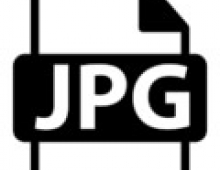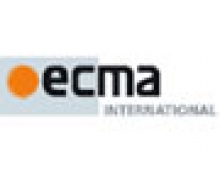
OSTA and Ecma Join Forces to Establish Optical Disc Archival Testing Standard
The Optical Storage Technology Association (OSTA) has signed an
agreement with Ecma International to work together to finalize an
industry-wide archival-grade optical disc specification.
The purpose of this initiative is to address end user needs calling for established
practices in media archive life testing and classification. The final goal
is the issuance of an ISO standard available to industry for broad
implementation.
Since its formation in Sept. 2005, OSTA's Optical Disc Archival Testing (ODAT) Committee has worked with a multi-national group of industry experts to develop a draft specification for an archival standard. The ODAT Committee is composed of global manufacturers of 120mm optical media and drives, as well as university and government members. Participating manufacturers include Fuji, Imation, MAM-A Inc., Maxell, Memorex, Panasonic (Matsushita Electric), Ricoh, Sony, TDK, Toshiba, and Verbatim. The committee has also received support from other industry organizations, including Japan's CDs21 and the Digital Content Association of Japan (DCAJ), and has held seminars and working sessions in the U.S. and Japan. Technical editing of the specification is led by Fred Byers of the US government's National Institute of Standards and Technology (NIST) organization.
The ODAT Committee's defined charter is to develop optical media archival test methodology and promote its implementation. Two working groups have addressed the technical and business promotion aspects of the archive test specification. Recently, the technical working group completed a first Ecma draft of the proposed archival test standard. The project was unanimously accepted by the Ecma TC31 committee at its recent meeting in Sapporo, Japan in late June. Further processing will take place under its charter.
Ecma is the inventor and main practitioner of the concept of "fast tracking" of specifications drafted in international standards format through the process in Global Standards Bodies such as the ISO. "Since 1986, when fast tracking was introduced to ISO, over 75 percent of the total of about 300 fast-tracked standards have been managed through Ecma," said Jan van den Beld, Ecma Secretary General.
"Under the OSTA organization, we brought together various independent groups that were working on similar ideas, in order to reach consensus on test methodology. Now we are partnering with Ecma in order to leverage their expertise in the creation of broadly adopted international standards," said Chris Smith, chairman of OSTA's ODAT Committee, general manager of Sony Corporation's Data Media Business Development Center in Boulder, CO, and active member of Ecma TC31 that will develop the international standard.
"The anticipated end result is increased user awareness of archival quality of optical media as a critical purchase parameter," explained Smith. "This will enhance customers' ability to make informed purchases appropriate to their application needs by providing a standardized evaluation result indicator. This product differentiation is intended to eliminate any guesswork that takes place when deciding which media to use when long life of data is a desirable attribute."
Since its formation in Sept. 2005, OSTA's Optical Disc Archival Testing (ODAT) Committee has worked with a multi-national group of industry experts to develop a draft specification for an archival standard. The ODAT Committee is composed of global manufacturers of 120mm optical media and drives, as well as university and government members. Participating manufacturers include Fuji, Imation, MAM-A Inc., Maxell, Memorex, Panasonic (Matsushita Electric), Ricoh, Sony, TDK, Toshiba, and Verbatim. The committee has also received support from other industry organizations, including Japan's CDs21 and the Digital Content Association of Japan (DCAJ), and has held seminars and working sessions in the U.S. and Japan. Technical editing of the specification is led by Fred Byers of the US government's National Institute of Standards and Technology (NIST) organization.
The ODAT Committee's defined charter is to develop optical media archival test methodology and promote its implementation. Two working groups have addressed the technical and business promotion aspects of the archive test specification. Recently, the technical working group completed a first Ecma draft of the proposed archival test standard. The project was unanimously accepted by the Ecma TC31 committee at its recent meeting in Sapporo, Japan in late June. Further processing will take place under its charter.
Ecma is the inventor and main practitioner of the concept of "fast tracking" of specifications drafted in international standards format through the process in Global Standards Bodies such as the ISO. "Since 1986, when fast tracking was introduced to ISO, over 75 percent of the total of about 300 fast-tracked standards have been managed through Ecma," said Jan van den Beld, Ecma Secretary General.
"Under the OSTA organization, we brought together various independent groups that were working on similar ideas, in order to reach consensus on test methodology. Now we are partnering with Ecma in order to leverage their expertise in the creation of broadly adopted international standards," said Chris Smith, chairman of OSTA's ODAT Committee, general manager of Sony Corporation's Data Media Business Development Center in Boulder, CO, and active member of Ecma TC31 that will develop the international standard.
"The anticipated end result is increased user awareness of archival quality of optical media as a critical purchase parameter," explained Smith. "This will enhance customers' ability to make informed purchases appropriate to their application needs by providing a standardized evaluation result indicator. This product differentiation is intended to eliminate any guesswork that takes place when deciding which media to use when long life of data is a desirable attribute."



















